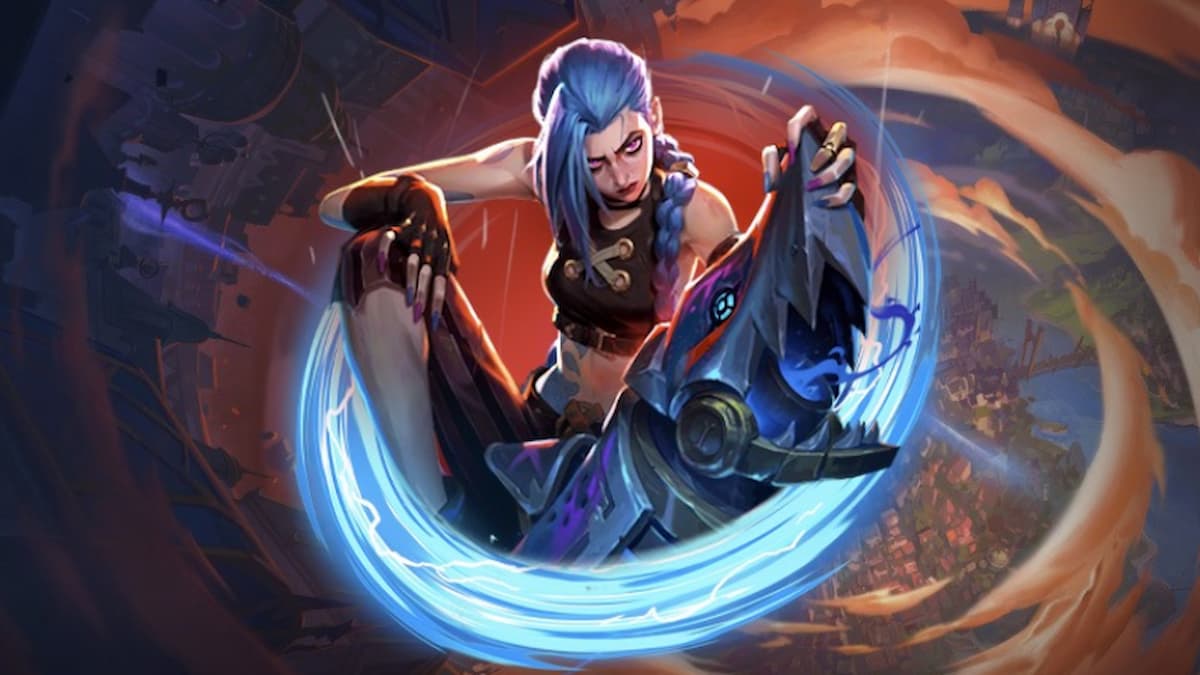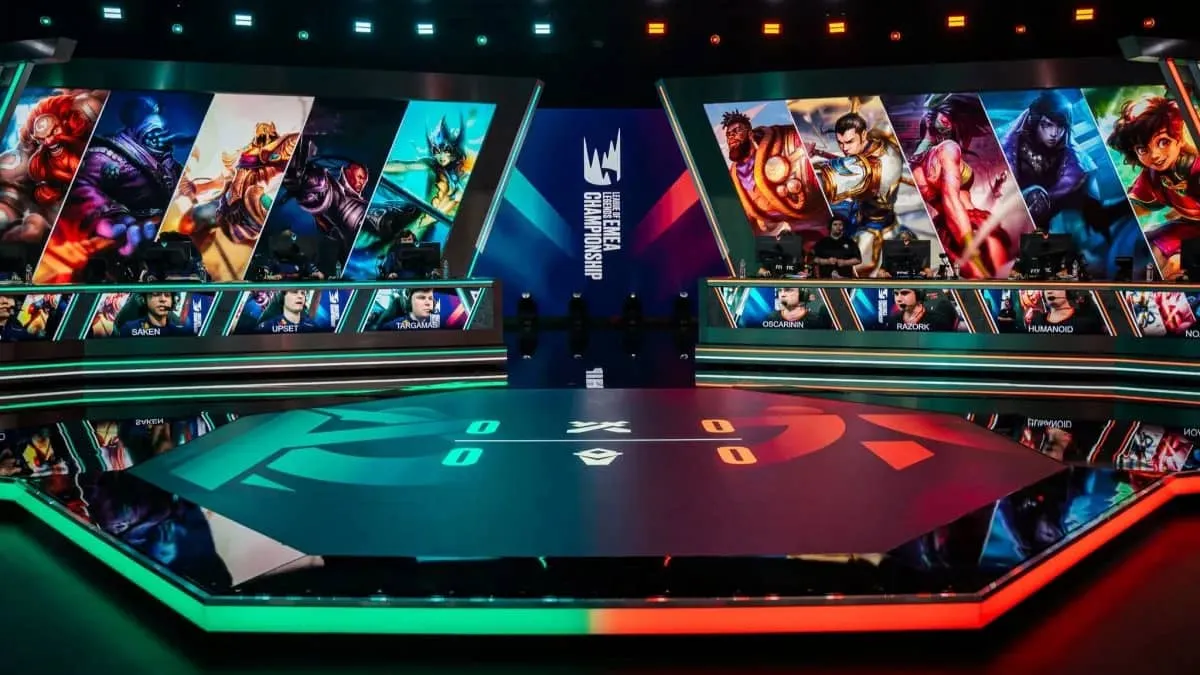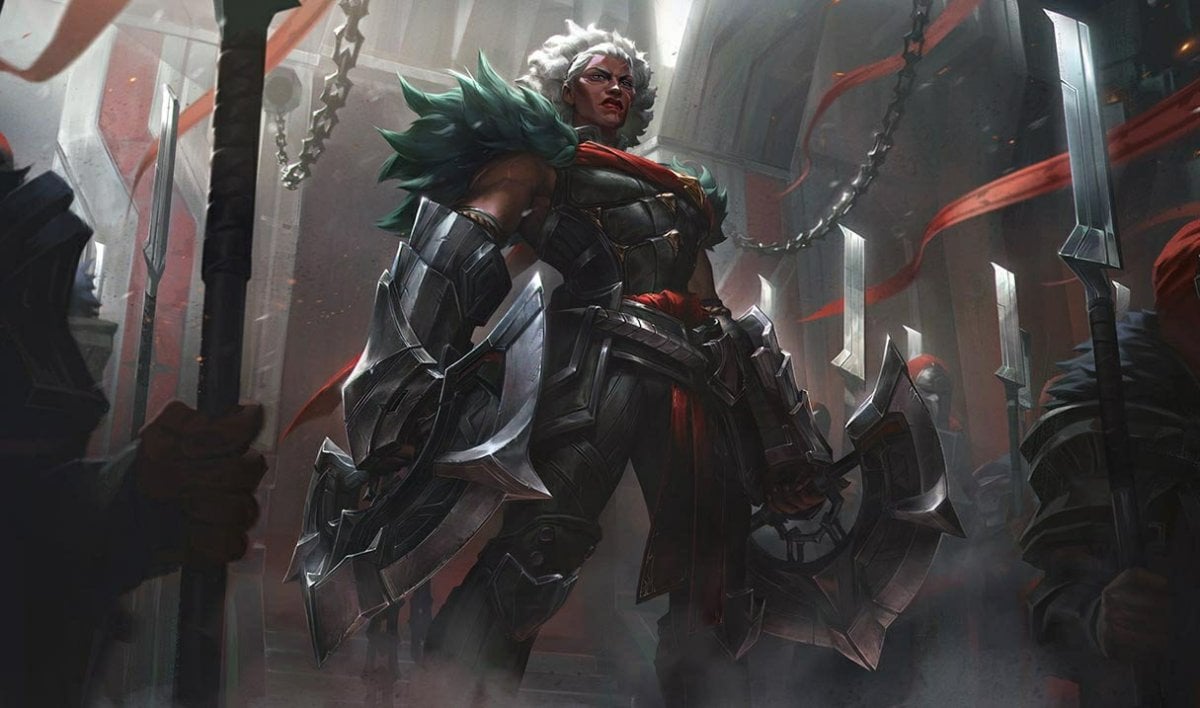
Humble Beginnings
Reginald is a complex person. He stands as one of the most controversial figures in Western League of Legends and one that fans love to hate, yet he founded and owns the most popular team in the West. His accomplishments as a player were numerous but largely took place before League of Legends became the pop culture phenomena it is today. He’s just one of a number of players whose peak came too soon, his prime left for a lesser time and a lesser stage before a League of Legends World Championship could sell out a World Cup Stadium. Instead, he and those like him were beacons in the dark, chasing a dream that millions now share but few can ever hope to accomplish. They struggled in half-lit rooms in convention halls across the United States and Europe for prize pools that barely covered expenses, with the real prize being the joy of shared accomplishment with four other people that dared to dream. You see, like all great things, League of Legends needed people like Reginald to lay the foundation for those that would come after. And for that, Reginald is without a doubt the most influential figure in the history of western competitive League of Legends.
The Right Place at the Right Time
In business, genius is often knowing the potential of something just a little bit before everyone else. Riot obviously knew they had a winner on their hands based on early player base retention and growth statistics, but for a mere player like Reginald, making a career out of League of Legends would have taken a monumental leap of faith. North America never had its Counter Strike or Starcraft like Europe and Korea. Being a professional gamer was a joke to be used in tv commercials and by parents laughing off their child’s interest in all night gaming sessions. It was a dream so remote as to be beyond thought and yet Reginald took that leap and never looked back.
TSM was once a whisper in the dark of the internet. A recruitment post for a clan called “All or Nothing” looking for twenty players to train together in random assortments. Not unlike the thousands of similar requests on hundreds of gaming websites across the internet. Looking back, the very notion seems ridiculous now. Players have assigned roles, and teams only carry a roster of 10 players at most. A full starting team and a sub for each position. Most outside of Korean have less. This idea for TSM was one rooted in MMO’s, a group of players joining together to improve and master the game. At this moment in time, it’s clear that even Reginald didn’t foresee what was to come, even if his decision to form TSM seems prescient now.

The Birth of a Giant
TSM formed in the beginning of 2011, and underwent a variety of roster swaps before settling on the first roster to achieve widespread recognition. That team included Reginald, The Oddone, The Rain Man, Xpecial and Chaox, and finished third at the first ever League of Legends World Championship. TSM was the first team to really leverage streaming as a source of revenue and exposure, with players like Chaox, the Rain Man and the Oddone helping secure TSM’s place as the most popular team in North America and originating the now famous “TSM bump” in streaming numbers that any player joining the roster experiences. This is important because the extra revenue helped TSM become the first League of Legends team to have a gaming house. That gaming house was one of two Reginald decisions that led to TSM dominating North America in Season 2. The second was picking up Dyrus after the Rain Man stepped down. This stands as arguably Reginald’s best decision to date, as Dyrus has been in the argument for best western top laner in every season since then. It also showed a level of commitment to success that no other team had yet to exhibit. It’s not for nothing that North American teams had a reputation for putting friendship over team success, and TSM was the first NA team to really break the mold in this regard. During this same time period, clg was busy moving hotshotgg all over the map and getting rid of saint, starting clg’s now longstanding reputation for ill advised roster moves. It took a long time for the rest of NA to learn the same lesson, and none have been able to make roster changes as fluidly and successfully as TSM.
Weathering the Storm
Reginald’s streak of exceptional decision making continued in Season 3, as the move to replace longstanding ADC, Chaox, with the up and coming Wildturtle yielded immediate results in a strong finish to the inaugural LCS Split, with TSM storming back in the standings to take home the Spring Championship. As the Summer Split of the 2013 Season dawned, expectations were riding high for a TSM squad that was arguably at the pinnacle of its popularity. Having won the inaugural split, TSM could now lay claim to over a year of continued dominance of their region, a time period that covered the entirety of season two and the first half of season three. But things were about to change. A combination of a number of factors was about to pose the greatest threat to the TSM brand since its inception. It all started with two upstart teams, Cloud 9 and Vulcun, that would take the old guard of the North America scene by storm. TSM and their fellow more established teams struggled against the meta changing ingenuity of Cloud 9 and the relentless early game aggression of Vulcun, dropping games left and right as Cloud 9 and Vulcun stormed out to nearly insurmountable leads in the standings. Meanwhile, across the pond in South Korea, Faker had come. Over the course of the summer split, his reputation grew as video after video of his dominance made it onto Reddit, culminating in his now infamous outplay of Ryu on Zed. As his legend grew, the North America community began to panic, and in that panic, the shortcomings of North American mids became exaggerated. Fans would have you believe that Reginald’s skills were greatly diminished in the Summer Split, but a look back at his performances yield a far different outlook. In actuality, Reginald had excelled on some of the most popular mid champions at the time, with his Zed and Ahri being particularly fearsome. In fact, Reginald’s Zed at the time had much the same reputation that Bjergsen’s would have the following season. You simply did not allow him to play Zed. Yet a combination of the community’s growing fear of the Korean beating we all assumed was coming and a few miss-picked blue cards gave Reginald a much undeserved reputation as over the hill.

One Chapter Ends
TSM did not perform well at the Season 3 World Championship, continuing their streak of successful domestic performance coupled with international failure. Yet, the blame rested more on fan favorites Dyrus, who seemed to go on tilt every single match, and the OddOne, whose jungle routes proved too predictable. Reginald took the blame all the same, and after months of rumors, announced TSM’s acquisition of former Copenhagen Wolves Mid Laner, Bjergsen, about a month before the start of the 2014 Season. This marked the end of Reginald’s career as a full time player, though he returned twice during the 2014 season to sub in for Bjergsen while he renewed his visa, more than holding his own and proving one final time that the rumors of his demise had been greatly exaggerated.
It is likely that Reginald will never quite get the recognition he deserves as a player, having dominated what was often seen as the lesser of the two western regions against inferior competition. It’s not for naught that TSM’s success in Season 2 was partially attributed to their gaming house being located on the east coast, allowing them to scrim against European teams without ping being too much of an impediment. While Europe had Fnatic, Moscow 5 and CLG.eu fighting for supremacy, North America was really the TSM show, with CLG abandoning the region for the first of multiple failed forays into the Korean scene. In hindsight, this lack of domestic completion has served to diminish TSM’s Season 2 accomplishments, effectively eliminating the most successful portion of Reginald’s career from consideration in the eyes of many.
Leading the Charge
While the story is still being written, Reginald’s accomplishments as owner of TSM will likely far outstrip his accomplishments as a player. As the first western team to acquire a gaming house, the first western team to fully embrace streaming as a platform for increasing popularity and revenue, and the first western team to bring on a true full-time live-in coach, TSM under Reginald has a long-standing reputation as a trailblazer and the primary driving force of growth in the western scene. His personnel decisions have been even more impressive. Every time TSM began to falter, Reginald would make a roster move that would almost immediately invigorate the team resulting in drastically improved performance.When TSM began to falter in Season 2, Reginald benched The Rainman in favor of Dyrus, beginning one of the longest streaks of dominance of any team in the history of League of Legends. When it seemed like the rest of North America had caught up in the first ever split of the LCS, Reginald benched Chaox in favor of Wildturtle, resulting in his infamous Caitlyn pentakill and a quick climb in the standings on the way to winning the spring playoffs. What made this decision so unique at the time is the growing sense in the professional community that the NA Challenger scene lacked talent. The lack of talent in the North American Challenger scene has always been over blown, a point that would be driven home when Wildturtle’s former team, Cloud 9, would enter and dominate the LCS in the second half of the season.
After TSM’s lackluster performance at the Season 3 World Championship, Reginald benched himself in favor of Bjergsen. Despite a massive patch released right before the end of the split that posed the single biggest change to the meta since ADC’s left mid for the bot lane, TSM managed to regain their place as a top team in North America, giving Cloud 9 their first real domestic competition in a year. Yet, it wasn’t enough. With the Oddone retiring, and Xpecial being sent off to Curse following some interpersonal issues, Reginald needed to work his magic once again. Reaching into the European talent pool for the second time, Reginald recruited Copenhagen Wolves Jungler, Amazing, to fill the top lane position and then pulled Gleeb off of Cloud 9 Tempest to fill Xpecial’s vacated spot. Gleeb would prove to be Reginald’s first miss, though the severity of the mistake was greatly exaggerated by the larger League of Legends fan base and had far more to do with Reginald over-estimating his own patience. Reginald’s decision to bypass the popular choice, Mithy, due to some past negativity between him and Dyrus proved prescient as Mithy was banned from competitive play shortly afterward for his solo que toxicity. Amazing would prove to be a more than adequate replacement for The Oddone, regardless of occasional champion pool issues, and in hindsight was clearly the best available option at the time. But Reginald’s real triumph was the acquisition of Locodoco as a full time coach and replacing Gleeb with Korean Support, and former OGN Champion, Lustboy, in the middle of the split. Though neither of these moves proved to have the immediate effect of Reginald’s past roster decisions, both would eventually prove successful.
It’s often said that good shot-calling is a direct result of superior vision control. Lustboy’s superiority in vision control over every other North American Support helped mitigate the growing pains of Bjergsen’s season long transition into TSM’s primary shotcaller, and covered up their biggest weakness heading into the Summer Playoffs. Locodoco’s presence was most felt in a much improved Pick and Ban phase, and a general improvement in team coordination. Improvements that were likely facilitated by the overly long break between the end of the Summer Split and the North American Regional. In that Regional, TSM would prove to be the toughest out in the tournament, seemingly getter better and better with each passing game and each passing best of five. Reginald and Locodoco’s surprising decision to coach TSM on stage between games in order to maximize coaching time rather than go back to their team room like everyone else seemed to do wonders for TSM’s overall performance, and was likely the primary reason that TSM’s performance improved over the course of each best of five. Now, coming off their best performance in a World Championship since Season 1, Reginald is looking to hit pay dirt once again with European import, Santorin, whose presence in the NA Challenger scene last split grandfathered him into Riot’s new Inter-regional movement policy.
A Growing Legacy
Reginald’s legacy as an owner runs deep in the North American scene. As the first owner to commit to growing the level of structure that is common place in Korea, Reginald has been able to keep TSM at the forefront of the North America region as an example that all western teams should follow. As a personality, he stands as the George Steinbrenner of League of Legends. Unafraid to make brash statements or roster decisions and not without a rivalry or two, but more committed to fielding a competitive League of Legends team than anyone else. His success is all the more surprising when you consider the fact that he is still just twenty-two years old and has been doing this on his own. TSM has always been his own creation, and while they’ve mixed things up with title sponsors in the past (TSM Snapdragon), Reginald has never had the support of an eSports organization like Curse. He built TSM from the ground up. If this occasionally manifests in a short-sighted outburst or two, so be it. Sure, there have been growing pains along the way. Poorly timed comments, and the occasional poor decision to allow an argument with a player to be filmed not withstanding. It’s not easy balancing being a player/friend and being the boss. People struggle with that in all industries. You can hardly blame Reginald for having the same struggle. It’s a very thin line you have to walk. I imagine it’s much easier now that he’s stepped back from being a player. At the same time, it takes a special kind of courage to do what’s necessary, even if you know you’re going to get beat up over it. But that is why he’s been so successful. Not many twenty-two year old have made so much out of such humble beginnings. And he’s really just beginning. League of Legends continues to grow as an eSport and TSM remains one of the best teams in the west. The best is yet to come.





Published: Dec 22, 2014 10:55 am